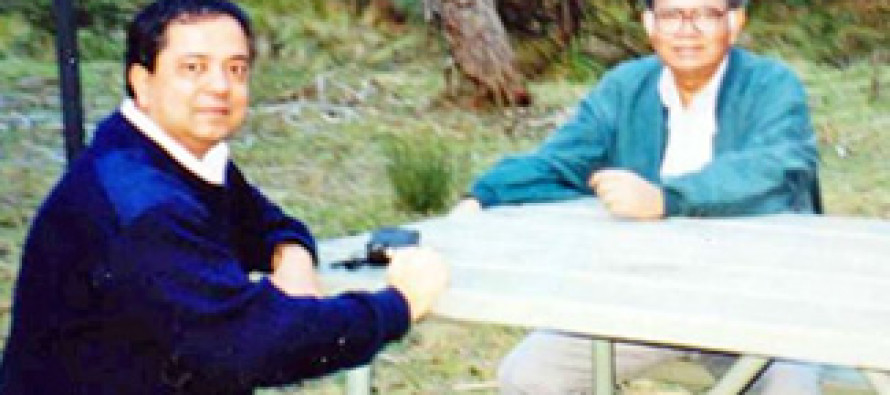Sunil’s passing; the legend will live on

These are sad days for Bangla literature, barely two months after the death of Humayun Ahmed we have to now face the news of the passing of legendary Sunil Gangapadhyay, to many of us, a very close Sunilda.
No other poet/writer from Kolkata since Rabindranath has captured heart and mind so profoundly in Bangladesh as Sunil did. Using sectarian language I might even step forward and say, no writer identified as a “Hindu” captured so many “muslim” hearts; Indeed in a truly modern Bangali sense Sunilda had become a truly secular icon of international Bangali identity.
That he may not be there one day seemed almost incredible; somehow in my mind I imagined him to be timeless, invincible; eternally young lover-poet writing of being young and in love so convincingly that one might imagine that he had found the elixir of youth.
During Mmy familiy’s every trip to Kolkata since 2000 when I first met him in Paris has caused me to make an obligatory trip to the Mandeville Garden apartment, the epicentre of modern Bangla poetry. In 2001 Sunilda came to Australia and Canberra and won hearts and minds.
In novels such as “Purbo-Poshchim”, “Prothom-Alo”, “Shei Shomoy” he blended history with the rise and fall of families and created modern Bangla novels that are unrivalled in their depth. Certainly I found him to be the most erudite among Bangla novelists and his breadth of learning and scholarship is unrivalled by any other novelist of his generation.
His friend Ashim Ray confided to me how Sunilda spent hours in Agartala library of the Tripura kings just to get an authentic history of the Tripura kingdom for his book “Prothom Alo”. Similarly “Shei_Shomoy” is full of characters from Dhaka and more than any other writers from Kolkata he delved into the mind of his Muslim characters to bring in authenticity and was very careful to write their names correctly.
Indeed being of Faridpur he had Bangladesh in his heart and left no chance of joining a good celebration or party in Dhaka. I have met him during some of these Dhaka parties, in full form as only Sunilda could be in. His wife Swati Gangapadhyaya (Swatidi to many of us) remained and does so today, his life-long convivial partner, witness to his energy, bonhomie and finally his widespread recognition and fame.
We carry in our home his books caringly signed by him; and indeed with a long wish for Sami, our son so that one day he would grow up and read his (Sunil’s) books. We remember fondly so many times when his role as Bangla language’s legend disappeared and he was just a simple friend. I am sure many other people in Sydney and Canberra remember him just like that, a self-effacing, friendly and warm person, whose dedication for the Bangla culture was total.
He confided to me of his ambition to write a major book on “Hasan Raja” and requested me a few times to take him to Sylhet to see the home of the legendary poet. In a gathering in Dhaka in 2005 both he and Humayun Ahmed debated as to who should write this book.
Today time for both of these legends are up and the Hasan Raja book has remained un-written. Just like Sunilda’s sudden death leaves us shocked, suspended in mid-sentence as we ponder the enormity of this loss to Bangla language and culture.
Today we remember him as a son of soil of Bangladesh who took refuge in the metropolis of Kolkata but remained loyal and linked to the allure of Bangladesh. His love for Bangalis and humanity and youth created a cultural space filled with poetic metaphor where dream patriotism and love lived together. He has now left his eternal travels and have found peace. In a memorable poem he once wrote talking of his refusal to settle abroad:
যদি নির্বাসন দাও
ওষ্ঠে অঙ্গুরি ছোঁয়াবো
বিষপান করে মরে যাব
Defying death may his eternal soul live forever.

wiki at http://en.wikipedia.org/wiki/Sunil_Gangopadhyay


